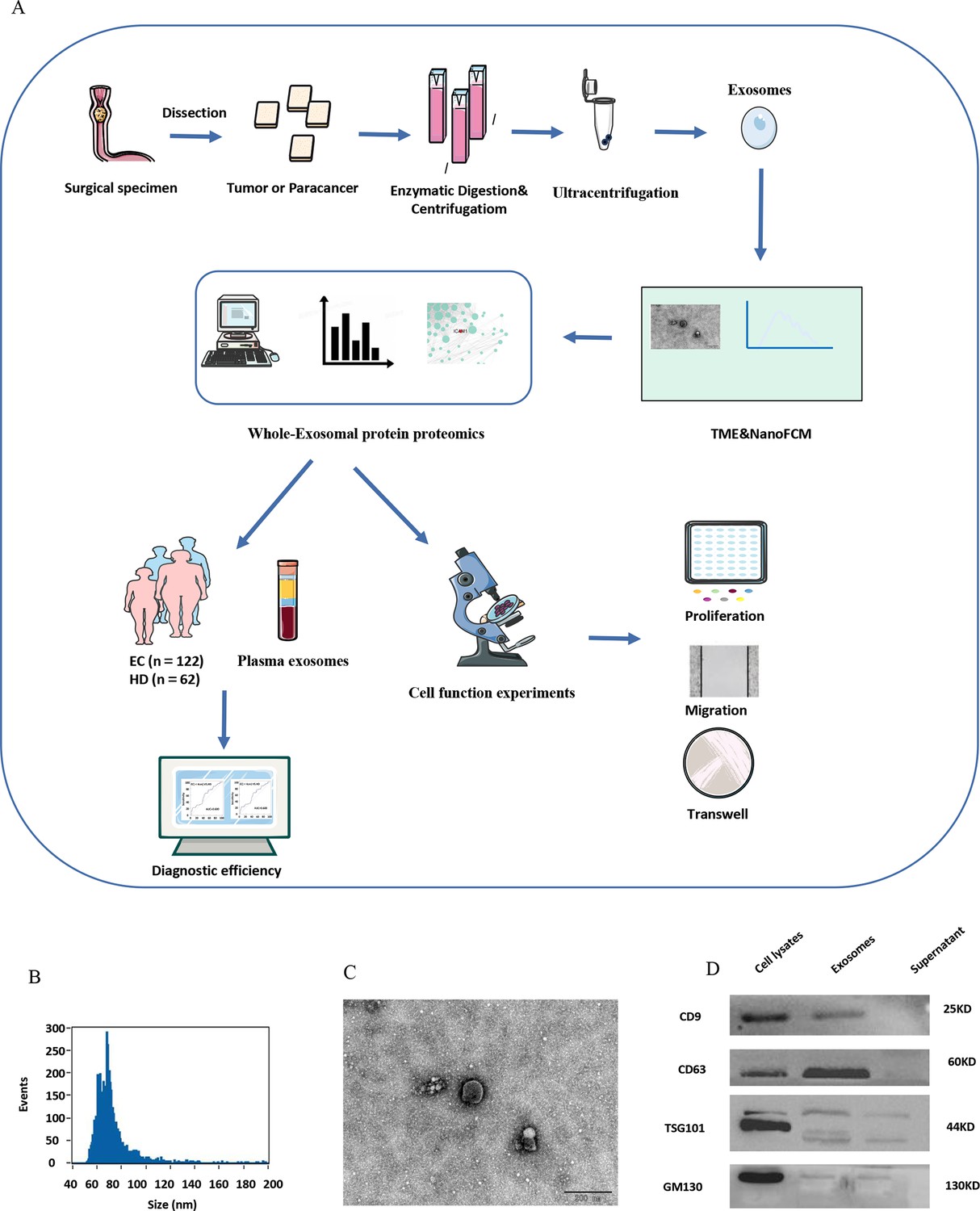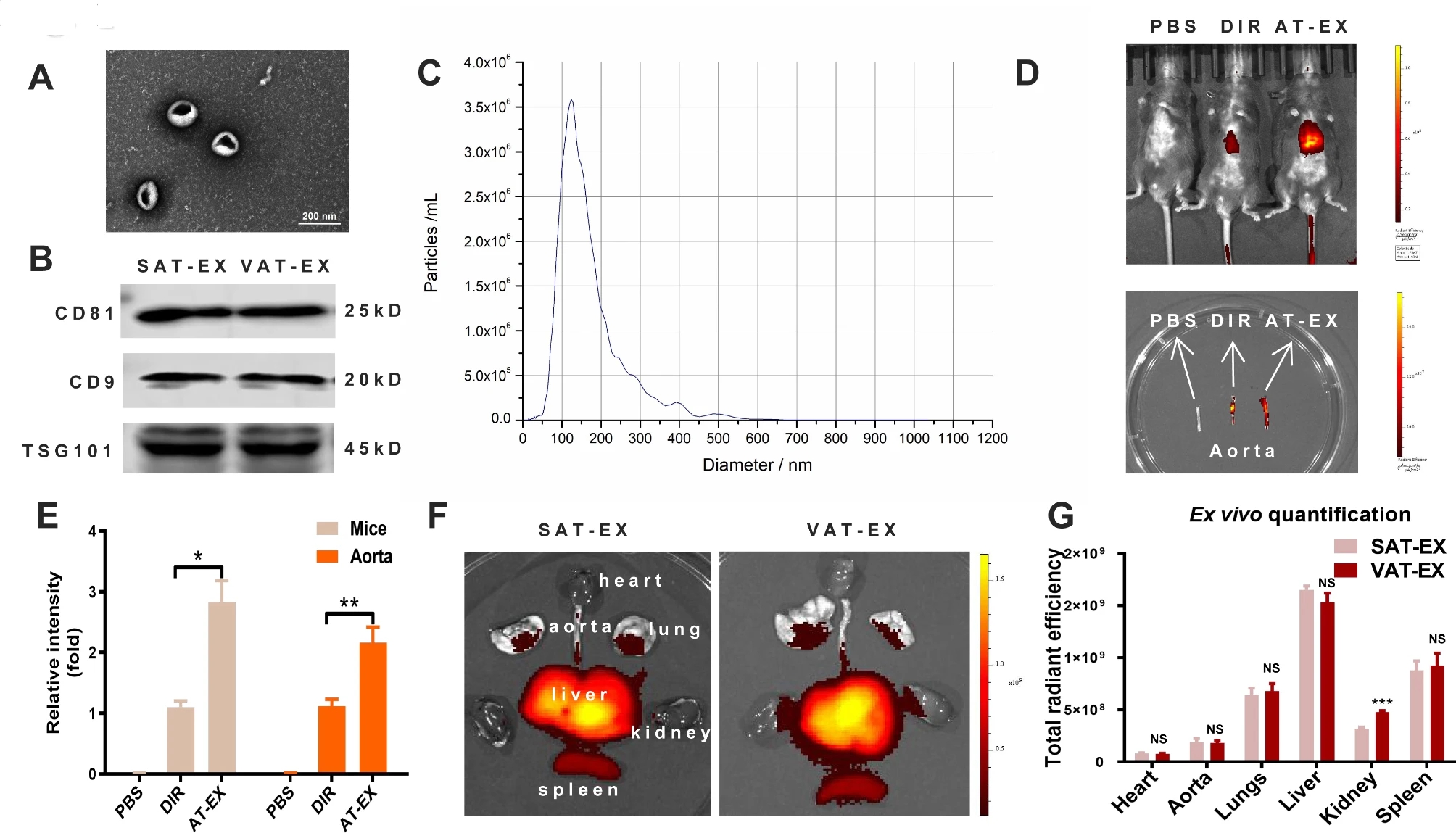Tissue Exosome Research and Applications
Exosomes are nanoscale extracellular vesicles secreted by cells and widely distributed in body fluids and the intercellular space. They play essential biological roles in intercellular communication, immune regulation, and disease progression. Unlike exosomes derived from cell culture media or body fluids, tissue-derived exosomes originate directly from the pathological tissue microenvironment, thereby offering a more accurate reflection of disease-specific intercellular communication. As such, they are increasingly recognized as valuable tools for exploring disease mechanisms and identifying reliable biomarkers.
Tissue Exosome Research and Applications spans multiple organ systems, including the brain, heart, bone, muscle, kidney, intestine, adipose tissue, placenta, and tumors. These exosomes have demonstrated high potential in areas such as neurodegenerative disease, cardiovascular pathology, oncology, and metabolic disorders. With advanced extraction technologies and a multi-omics analytical platform, MtoZ Biolabs provides end-to-end, high-efficiency services to support global researchers in Tissue Exosome Research and Applications.
Services at MtoZ Biolabs
MtoZ Biolabs offers integrated services for the high-quality isolation, physicochemical characterization, omics profiling, and functional analysis of tissue-derived exosomes. We support in-depth investigations into disease pathogenesis and biomarker discovery across the following tissue types:
✔Brain Tissue Exosome Research and Application
✔Heart Tissue Exosome Research and Application
✔Bone Tissue Exosome Research and Application
✔Muscle Tissue Exosome Research and Application
✔Kidney Tissue Exosome Research and Application
✔Intestinal Tissue Exosome Research and Application
✔Adipose Tissue Exosome Research and Application
✔Placental Tissue Exosome Research and Application
✔Tumor and Cancer Tissue Exosome Research and Application
Additional services include:
✅ Standardized tissue processing and exosome extraction (e.g., homogenization, in situ digestion, tissue slice digestion, short-term explant culture)
✅ Exosome purification and validation (ultracentrifugation, membrane filtration, charge-based separation)
✅ Physicochemical analysis (NTA, TEM, morphology, marker validation via Western blot)
✅ Multi-omics profiling (proteomics, RNA sequencing, lipidomics, metabolomics)
✅ Bioinformatics analysis (differential expression, pathway enrichment, target prediction)
✅ Functional validation (cell-based assays, animal models, functional perturbation studies)
Service Advantages
· Multi-Tissue Compatibility: Customized workflows support exosome studies from diverse tissues including brain, heart, bone, muscle, kidney, intestine, adipose, placenta, and tumor.
· High-Purity Extraction from Complex Tissues: Advanced separation and impurity-removal techniques ensure minimal contamination from cellular debris.
· Comprehensive Multi-Omics Platforms: Equipped with high-resolution mass spectrometry and Illumina sequencing systems for deep profiling of tissue-derived exosomes.
· Powerful Data Integration and Interpretation: Combines clinical-pathological information with multi-omics data to unlock functional relevance of exosomes in diagnostics and therapeutics.
· All-in-one Scientific Workflow: From sample handling to data analysis and publication-ready reporting, we offer a full-cycle service tailored to your project goals.
· One-Time-Charge: Our pricing is transparent, no hidden fees or additional costs.
Applications
Tissue Exosome Research and Applications has become a transformative strategy for biomarker discovery, disease mechanism elucidation, and therapeutic response assessment. Representative applications include:
· Neurodegenerative Disease Research: (e.g., brain tissue exosome-mediated transmission of pathological proteins in Alzheimer’s disease)
· Cardiovascular Mechanism Studies: (e.g., heart-derived exosomes modulating inflammation and myocardial repair)
· Bone remodeling and Metabolism: (e.g., bone exosomes regulating the balance between osteogenesis and osteoclastogenesis)
· Tumor Immune Evasion and Progression: (e.g., tumor-derived exosomes delivering immune-suppressive factors)
· Drug Mechanism Studies and Efficacy Evaluation: (exosomes as delivery vehicles and response biomarkers)
Case Study
Case 1: Proteomic profiling of tumor-derived exosomes reveals candidate diagnostic markers for esophageal cancer
A label-free quantitative proteomic analysis compared exosomal protein profiles between tumor and adjacent normal tissues from patients with esophageal carcinoma. CD54 was identified as a significantly upregulated candidate. Subsequent validation in plasma exosomes from 122 patients demonstrated strong diagnostic potential with good sensitivity and specificity. CD54 also promoted cancer cell proliferation and migration.

Rao, D. et al. eLife. 2023.
These findings underscore the utility of proteomics in Tissue Exosome Research and Applications, particularly for early cancer detection. MtoZ Biolabs supports tumor-focused exosome research with end-to-end solutions.
Case 2: Adipose tissue-derived exosomes contribute to atherosclerosis pathogenesis
Using a high-fat diet-induced obesity mouse model, researchers isolated adipose tissue-derived exosomes (AT-EX) and investigated their role in atherosclerosis. Functional studies revealed that AT-EX promoted endothelial apoptosis and enhanced vascular smooth muscle cell (VSMC) proliferation and migration, facilitating plaque formation. Enriched miR-132/212 within AT-EX were identified as key mediators via targeting GNA12 and PTEN signaling. Notably, melatonin treatment suppressed miR-132/212 levels and attenuated pathogenic effects.

Guo, B. et al. Cardiovasc. Diabetol. 2024.
This study highlights the value of Tissue Exosome Research and Applications in elucidating disease mechanisms in metabolic and cardiovascular contexts. MtoZ Biolabs provides comprehensive support for similar investigations.
FAQ
Q1: How do tissue-derived exosomes compare to fluid-derived ones?
A1: Tissue-derived exosomes originate directly from the lesion site and accurately reflect localized pathological changes, making them more specific and representative for mechanistic studies and biomarker discovery.
Q2: How is contamination from cellular debris minimized during exosome isolation?
A2: Our protocols combine precise homogenization controls with serial centrifugation and membrane filtration to effectively eliminate free cells and debris, ensuring exosome purity and data quality.
Q3: What are common challenges in tissue exosome studies?
A3: Common issues include sample degradation, tissue heterogeneity, and inconsistent digestion efficiency. MtoZ Biolabs offers standardized pre-processing solutions and optimized workflows to maximize consistency and reproducibility.
Tissue Exosome Research and Applications opens a new frontier in exploring the cellular microenvironment and its role in disease. With growing relevance in precision medicine, regenerative therapy, early diagnosis, and biomarker development, tissue-derived exosomes are becoming indispensable tools in biomedical research.
MtoZ Biolabs remains at the forefront of Tissue Exosome Research and Applications, offering cutting-edge technologies and expert scientific support to help clients worldwide unlock the translational potential of exosomes. Contact us to learn how we can support your research goals.
How to order?







